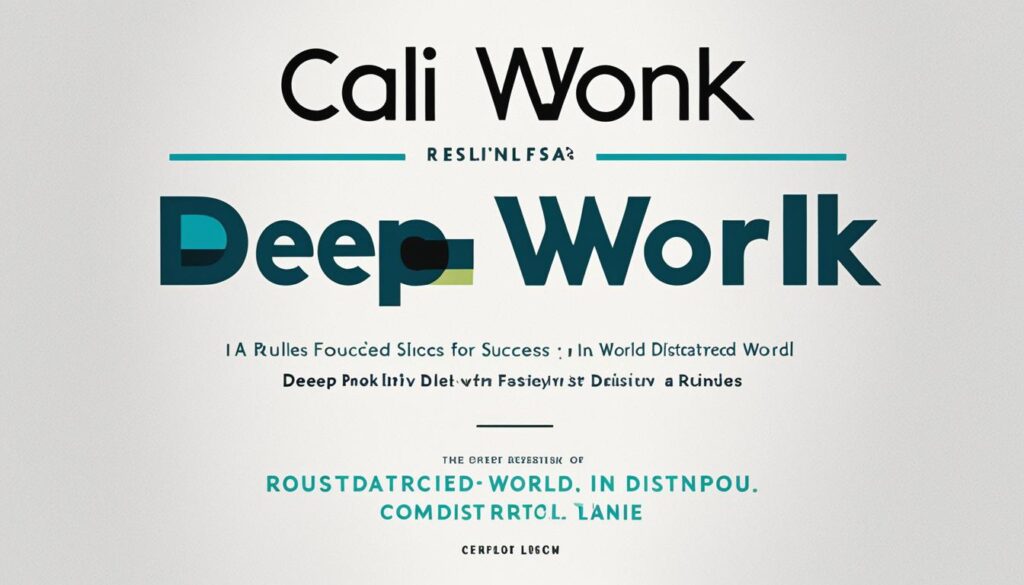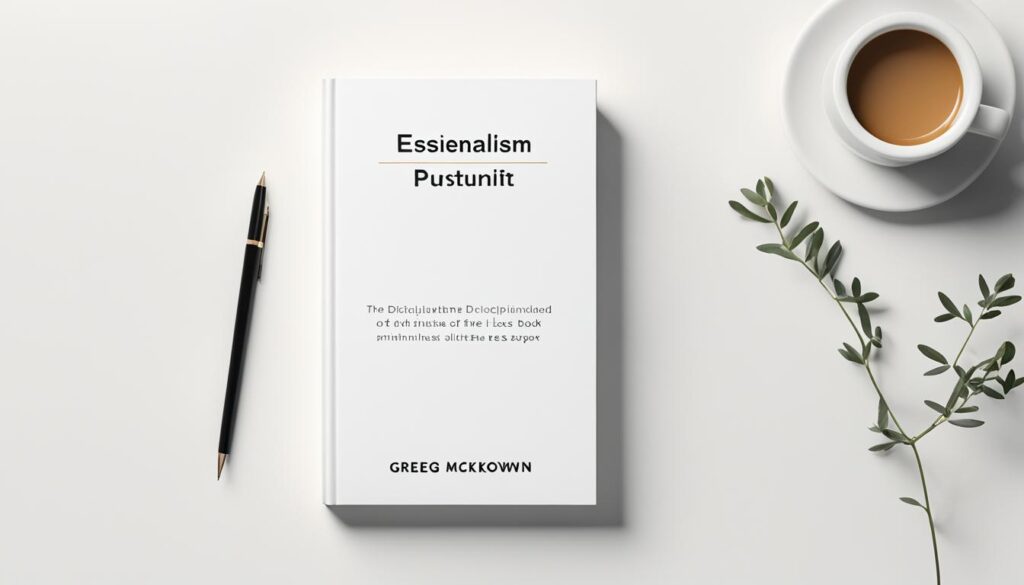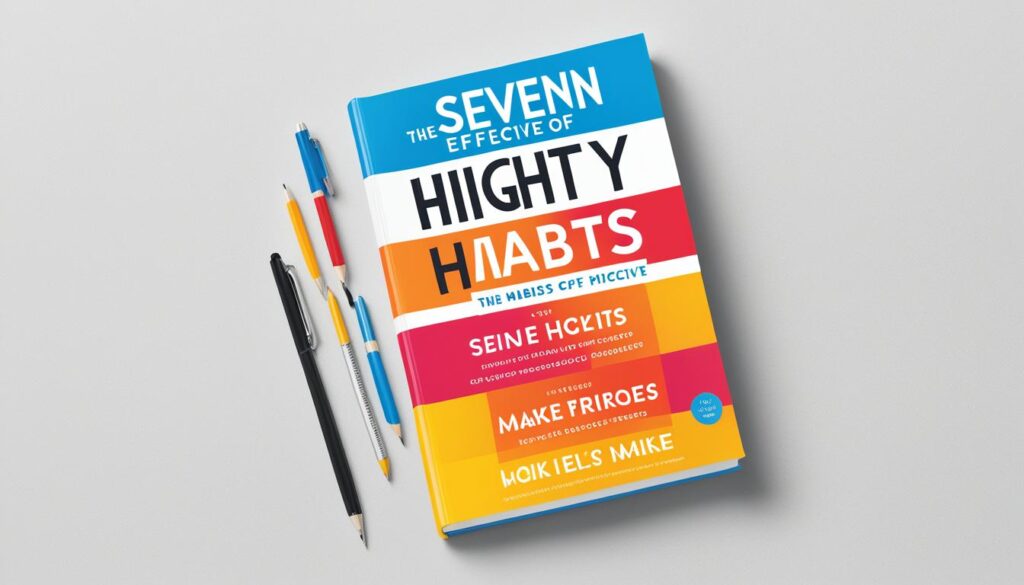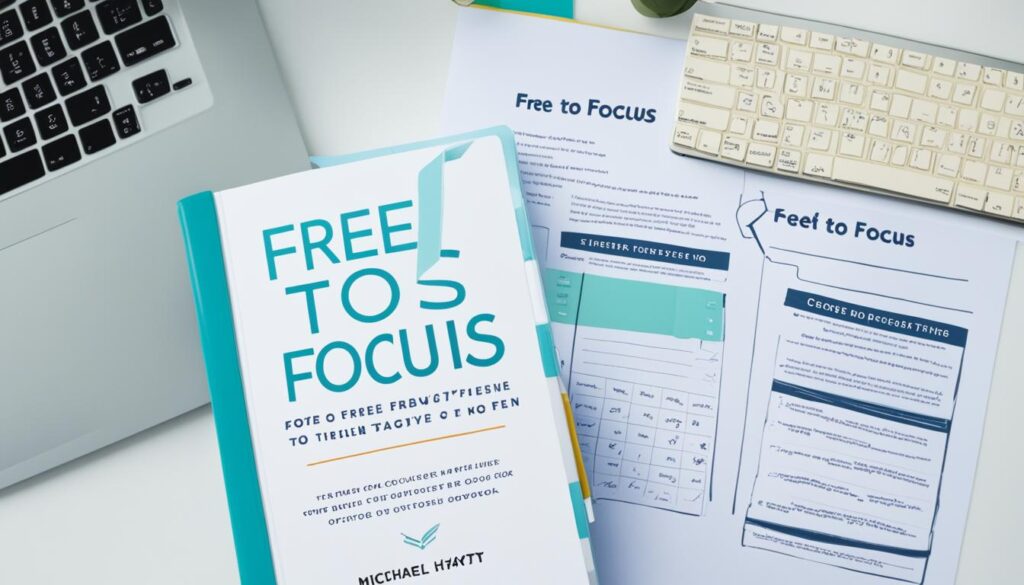Boost Your Efficiency with Best Productivity Books

Are you struggling to stay focused and make the most of your time? Do you find yourself easily distracted and unable to achieve your goals? If so, it’s time to take control of your productivity and unlock your full potential. But where do you start? Which books can provide you with the strategies and techniques you need to improve your efficiency and achieve success? In this article, we will explore the top productivity books that can help you take your productivity to new heights. Get ready to revolutionize your approach to work and life!
Key Takeaways:
- Discover the top productivity books that can help you increase efficiency
- Unlock the secrets to time management and eliminate distractions
- Learn practical strategies and techniques for improving productivity
- Gain valuable insights from renowned authors in the field of personal development
- Transform your approach to work and achieve your goals
“Deep Work: Rules for Focused Success in a Distracted World” by Cal Newport
Are you tired of feeling overwhelmed by distractions and struggling to accomplish your goals? Look no further than Deep Work by Cal Newport. In this groundbreaking book, Newport explores the concept of deep work and its profound impact on productivity.
Newport firmly believes that the ability to focus deeply on tasks without distractions is the key to achieving exceptional results. He provides practical strategies and techniques for overcoming common distractions and maximizing your cognitive abilities to produce high-quality work.
By reading Deep Work, you’ll learn how to structure your time effectively, eliminate distractions, and tap into a state of flow where your productivity and creativity flourish. Newport’s insights will empower you to achieve focused success in today’s distracted world.

Techniques for Overcoming Distractions
To help you overcome distractions, Newport introduces various productivity techniques in Deep Work. These techniques include:
- Implementing time-blocking strategies to schedule focused work periods
- Designing a distraction-free work environment
- Practicing mindfulness to enhance concentration
- Establishing boundaries to protect your deep work time
- Utilizing tools and technologies to minimize digital distractions
By applying these techniques and incorporating deep work into your routine, you’ll be able to unleash your full potential and achieve remarkable outcomes.
The Power of Focused Success
In Deep Work, Newport emphasizes that success is not solely determined by the number of hours you put into work, but by the quality of your efforts. By cultivating deep work habits, you’ll be able to produce higher-caliber work in less time. This focused success allows you to excel in your chosen field and stand out among your peers.
| Benefits of Deep Work | Consequences of Distractions |
|---|---|
|
|
As you can see from the table above, adopting deep work techniques yields numerous benefits while succumbing to distractions can have negative consequences on your work and overall well-being.
In summary, Deep Work by Cal Newport is a must-read for anyone looking to enhance their productivity and overcome distractions. By implementing the strategies outlined in this book, you’ll be able to harness the power of deep work and unlock your true potential. Say goodbye to constant interruptions and hello to a more focused and successful life.
“Essentialism: The Disciplined Pursuit of Less” by Greg McKeown
“Essentialism” by Greg McKeown offers a fresh perspective on productivity by advocating for a minimalist approach to work and life. McKeown emphasizes the importance of setting clear priorities and eliminating non-essential tasks and commitments. By focusing on what truly matters, you can maximize your productivity and achieve better results. This book provides practical advice on how to say no to non-essential tasks, simplify your workflow, and create more space for what truly matters.

Embracing essentialism allows you to break free from the trap of busyness and constant multitasking. Instead, you learn to hone in on the vital few activities that align with your goals and values. With a disciplined pursuit of less, you can direct your energy towards what brings the most significant impact and satisfaction.
Greg McKeown guides readers through the process of identifying their highest priorities and shedding the non-essential. By eliminating distractions and unnecessary commitments, you make room for deep work and focused attention on the tasks that truly matter. This deliberate approach helps you avoid spreading yourself thin, allowing for greater effectiveness and the ability to produce high-quality outputs.
Whether you’re overwhelmed by endless to-do lists or looking to streamline your work and personal life, “Essentialism” offers practical strategies to prioritize and simplify. By taking control of your time and resources, you can achieve more by doing less.
“The 7 Habits of Highly Effective People” by Stephen Covey
“The 7 Habits of Highly Effective People” by Stephen Covey is a classic book that explores the habits and principles that lead to success. Covey introduces seven principles that can transform your personal and professional life. These habits include being proactive, beginning with the end in mind, prioritizing tasks, and seeking synergistic relationships. By adopting these habits, you can improve your productivity, build strong relationships, and achieve your goals.
The 7 Habits of Highly Effective People
In his book, Stephen Covey outlines the seven habits that highly effective people possess. These habits have been widely acclaimed for their ability to promote personal growth, enhance productivity, and foster positive change. Let’s explore these habits:
- Be Proactive: Highly effective individuals take responsibility for their actions and make proactive choices that align with their values and goals.
- Begin With the End in Mind: Effective people have a clear vision of their desired outcomes and set goals that align with their purpose.
- Put First Things First: Prioritizing tasks based on importance and urgency allows effective individuals to focus on what matters most and avoid distractions.
- Think Win-Win: Effective people seek mutually beneficial solutions and strive for collaboration rather than competition.
- Seek First to Understand, Then to Be Understood: Active listening and empathetic communication are essential in building strong relationships and resolving conflicts.
- Synergize: Effective individuals value teamwork, embrace diversity, and leverage the strengths of others to achieve shared goals.
- Sharpen the Saw: Continuous self-improvement through personal growth and learning is key to maintaining balance and sustaining effectiveness over time.
By incorporating these habits into your daily life, you can cultivate a growth mindset, enhance your productivity, and achieve long-term success. Stephen Covey’s “The 7 Habits of Highly Effective People” has inspired millions of individuals worldwide to unlock their full potential and live a more fulfilling life.

Comparison of the 7 Habits
| Habit | Description |
|---|---|
| Be Proactive | Take initiative and responsibility for your actions |
| Begin With the End in Mind | Set clear goals and visualize your desired outcomes |
| Put First Things First | Prioritize tasks based on importance and urgency |
| Think Win-Win | Seek mutually beneficial solutions and cooperation |
| Seek First to Understand, Then to Be Understood | Practice empathetic communication and active listening |
| Synergize | Collaborate and work together to achieve shared goals |
| Sharpen the Saw | Continuously learn and improve yourself |
“Zen to Done” by Leo Babauta
“Zen to Done” by Leo Babauta offers a simple and practical approach to productivity. In this book, Babauta shares ten powerful habits that can transform the way you work, helping you become more organized, focused, and efficient. By implementing these habits in your daily routine, you can simplify your workload, reduce stress, and achieve greater productivity.
The key to Babauta’s approach lies in simplicity. He emphasizes the power of focusing on one task at a time and eliminating distractions to maintain a state of flow. By setting clear goals and prioritizing tasks, you can stay on track and make progress towards your objectives. Babauta also emphasizes the importance of mindfulness, encouraging readers to be present and fully engaged in their work.
Key Habits from “Zen to Done”
- Set Clear Goals: Define your objectives to stay focused and motivated.
- Collect: Gather all your tasks and ideas in a central location.
- Process: Prioritize tasks and decide on the next actions.
- Plan: Organize your day and allocate time for essential tasks.
- Do: Take action on your top prioritized tasks.
- Simple Systems: Create streamlined systems to manage your workflow.
- Organize: Maintain an organized workspace and digital environment.
- Review: Reflect on your progress and make necessary adjustments.
- Simplify: Eliminate non-essential tasks and focus on what matters most.
- Find Your Passion: Align your work with your passions and values for greater fulfillment.
“Zen to Done” provides a practical roadmap for developing new productivity habits and integrating them into your daily life. It is a must-read for anyone seeking to simplify their work, enhance their focus, and achieve their goals with ease.
“Free to Focus” by Michael Hyatt
“Free to Focus” by Michael Hyatt is a transformative book that can revolutionize your approach to productivity and time management. Hyatt’s strategies empower you to eliminate distractions, set clear goals, and focus on high-value tasks that drive results. By implementing his practical techniques, you can optimize your workflow, increase your productivity, and achieve better outcomes in less time.
Hyatt emphasizes the importance of identifying and eliminating distractions that hinder your progress. He provides actionable tips on how to declutter your workspace, manage interruptions, and establish boundaries that protect your focus.
Planning Your Day for Maximum Efficiency
One of the key takeaways from “Free to Focus” is the value of intentional planning. Hyatt offers step-by-step guidance on how to create effective routines and daily schedules that align with your priorities. By structuring your day and allocating time blocks for specific tasks, you can optimize your energy and make significant progress towards your goals.
Hyatt also introduces the concept of “ideal weeks,” which help you align your priorities with your long-term objectives. By designing an ideal week, you can ensure that you devote ample time to high-value activities and minimize time spent on low-impact tasks.
Managing Your Energy for Optimal Performance
In “Free to Focus,” Hyatt highlights the significance of managing your energy levels to maximize productivity. He shares valuable insights on how to identify your peak performance times and structure your work accordingly. By leveraging your energy cycles, you can focus on demanding tasks when you are most alert and save less critical activities for times when your energy naturally dips. This approach allows you to maintain a high level of productivity throughout the day.
Achieving Better Results in Less Time
Through “Free to Focus,” Hyatt equips you with practical strategies for achieving better results in less time. He emphasizes the importance of ruthless prioritization and provides a framework for evaluating tasks based on their impact and alignment with your goals. By focusing on the most value-adding activities and eliminating or delegating non-essential tasks, you can free up time and energy to focus on what truly matters.
By implementing the strategies outlined in “Free to Focus,” you can transform your approach to productivity and unlock your full potential. Say goodbye to overwhelm and reclaim control over your time and tasks. Experience the freedom to focus on what truly matters and achieve your goals more efficiently.

Conclusion
Investing in productivity books is the key to unlocking your full potential and achieving your goals. These books offer valuable insights and techniques for improving your efficiency, managing your time effectively, and developing yourself personally. Whether you are a student, a professional, or an entrepreneur, there are productivity books out there that can provide you with the guidance and inspiration you need.
By implementing the strategies and techniques outlined in these books, you can boost your productivity and make the most out of your time. You will learn how to manage your tasks and priorities, eliminate distractions, and focus on what truly matters. These books will teach you how to optimize your workflow and develop the habits and mindset necessary for success.
Remember, the journey to increased productivity and personal development starts by choosing the best productivity book that resonates with you. So, take the first step, invest in yourself, and begin your transformation today. Embrace the power of productivity strategies and watch as you become more efficient, successful, and fulfilled in all areas of your life.






